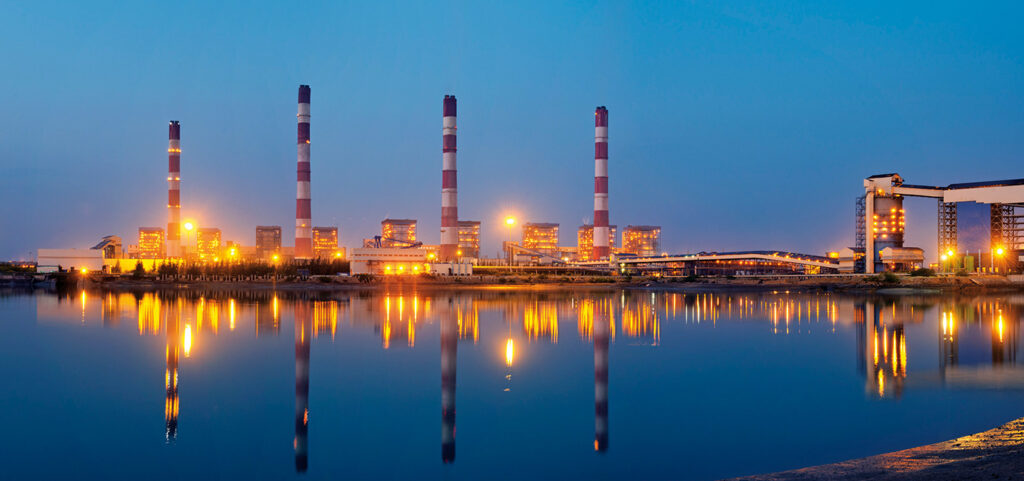
Introduction: When Mountains Meet Megawatts
Imagine standing at the edge of a crystal-clear river in the Himalayas, surrounded by untouched forests and the silent might of towering peaks. Now imagine that same water turning turbines and lighting up homes in Mumbai. That’s not just poetic — that’s the new reality Adani Power is betting on.
In a bold move that could reshape India’s energy map, Adani has signed a landmark agreement with Bhutan’s state-run Druk Green Power Corporation (DGPC) to co-develop a massive 5,000 MW of hydropower projects. But this isn’t just another cross-border MoU — it’s a strategic play in the high-stakes game of clean energy dominance.
What’s the Deal? Adani’s MoU with Bhutan Explained
Let’s break it down simply:
- What Happened: Adani Power and DGPC inked an MoU to explore and build 5,000 MW of new hydropower and pumped storage projects.
- Where: Bhutan — a country known for its untouched natural resources and hydro potential.
- Why It Matters: This move could double the size of their current joint venture and supercharge clean energy exports to India.
This isn’t their first rodeo either. Adani and DGPC already share stakes in the ongoing Wangchhu Hydropower Project — 51% DGPC, 49% Adani.
Why Bhutan? Why Now?
Bhutan may be small in size, but it’s rich in water resources — a goldmine for hydropower. Here’s why this Himalayan nation is becoming a hotbed for clean energy:
- Untapped Potential: Bhutan’s rivers can generate up to 30,000 MW of clean electricity — and only a fraction has been harnessed.
- Policy Push: The Bhutan Renewable Energy Roadmap 2040 aims for 20,000 MW of installed capacity, focusing on hydropower, solar, and geothermal.
- Regional Cooperation: With India’s growing energy appetite and net-zero ambitions, Bhutan’s power surplus becomes a regional asset.
Adani’s move fits neatly into this puzzle — offering Bhutan investment and execution muscle, while gaining India a greener power supply.
What’s In It for India (and Adani)?
This deal isn’t just about Bhutan — it’s about India’s future.
Strategic Benefits for India:
- Diversified Energy Mix: Helps reduce coal dependency.
- Stable Imports: Hydropower is less volatile than solar/wind.
- Grid Security: Pumped storage offers backup during peak loads.
Business Benefits for Adani:
- Expands Renewable Portfolio: Aligns with Adani Green’s long-term goals.
- Regional Influence: Strengthens cross-border power diplomacy.
- First Mover Advantage: Establishes a foothold in Bhutan’s energy sector.
But It’s Not All Smooth Flowing…
While the MoU creates buzz, investors and analysts are cautious. Here’s why:
| Challenge | Details |
|---|---|
| Past Negotiation Hurdles | Adani previously pushed for 70% ownership and 90+ year concessions — clashed with Bhutanese policy. |
| Market Skepticism | Stock dipped 2.2% post-announcement — investors want firm agreements, not just intent. |
| Regulatory Uncertainty | No final deal yet — project structure, financing, and approvals still pending. |
So yes, it’s a big vision — but it’s still on paper.
Market Reaction: Too Early to Celebrate?
Despite the bold announcement, the stock market remained unimpressed:
- As of 13:20 PM on May 12, Adani Power stock was down 2.20%, trading at ₹508.75.
- Reason? Investors are taking a “wait and watch” approach.
- MoUs are often just the first handshake — execution and regulatory clearance will decide real gains.
Real-Life Analogy: A Pre-Wedding Engagement
Think of this MoU like an engagement ring — a promise, not yet a marriage. The ceremony (read: formal agreement, investment, construction) is yet to happen. And if history is any indicator, the road to the altar can be rocky, especially when government policies and foreign ownership are involved.
FAQs: Snippet-Optimized for Google
What is the Adani-Bhutan hydropower deal?
Adani Power signed an MoU with Bhutan’s DGPC to develop 5,000 MW hydropower and pumped storage projects.
Why is Bhutan important for India’s energy needs?
Bhutan has rich hydropower potential and can export clean energy to India, helping diversify India’s power mix.
Is the Adani-Bhutan project confirmed?
Not yet. It’s in the MoU stage, meaning it’s a framework for collaboration, but not a signed final contract.
How did the market react to the Adani-Bhutan MoU?
Adani Power’s stock fell by 2.20% post-announcement, reflecting cautious investor sentiment.
